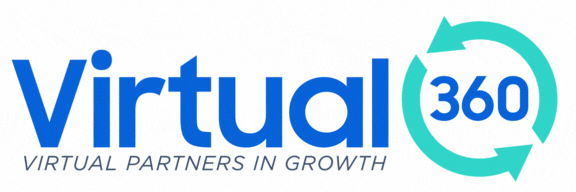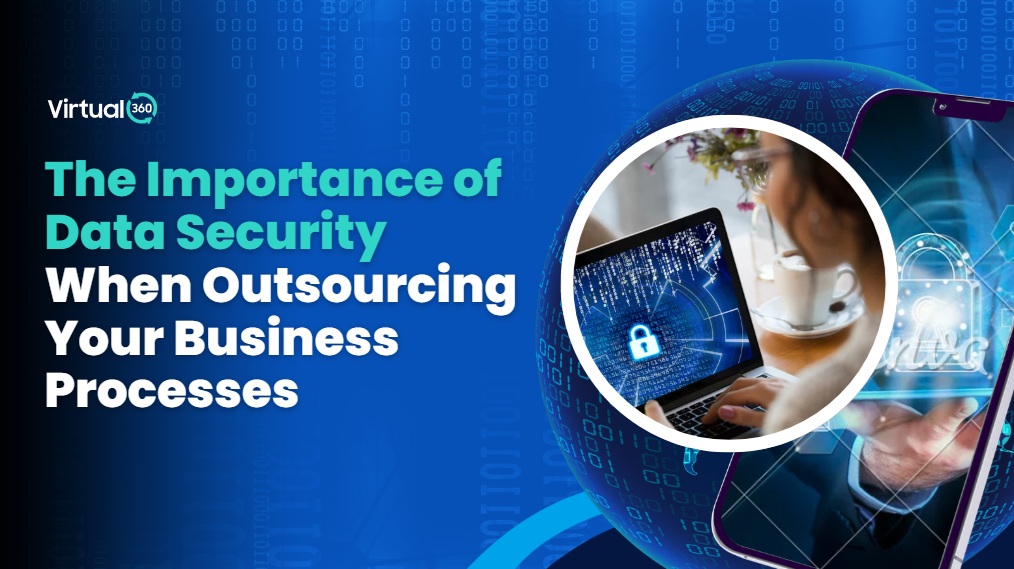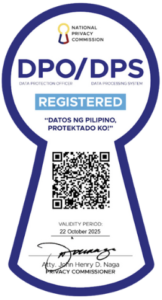Businesses are rapidly turning to outsourcing as a solution to enhance efficiency, reduce costs, and focus on core competencies. However, this convenience comes with a critical concern: data security in outsourcing.
Outsourcing often involves granting external entities access to proprietary information, customer data, and operational processes. While this collaboration can yield numerous benefits, it also exposes businesses to potential security risks. Thus, understanding the importance of data security in outsourcing is paramount.
The Role of Data Security in Outsourcing
Data security in outsourcing involves measures to protect information from unauthorized access, corruption, or theft. It is a legal and ethical responsibility, as mishandling data can result in breaches, financial losses, and penalties. Vendors often manage sensitive data like customer details and intellectual property, making it crucial for businesses to enforce strong security practices to prevent cyberattacks and leaks. [1]
Key Risks Associated with Outsourcing
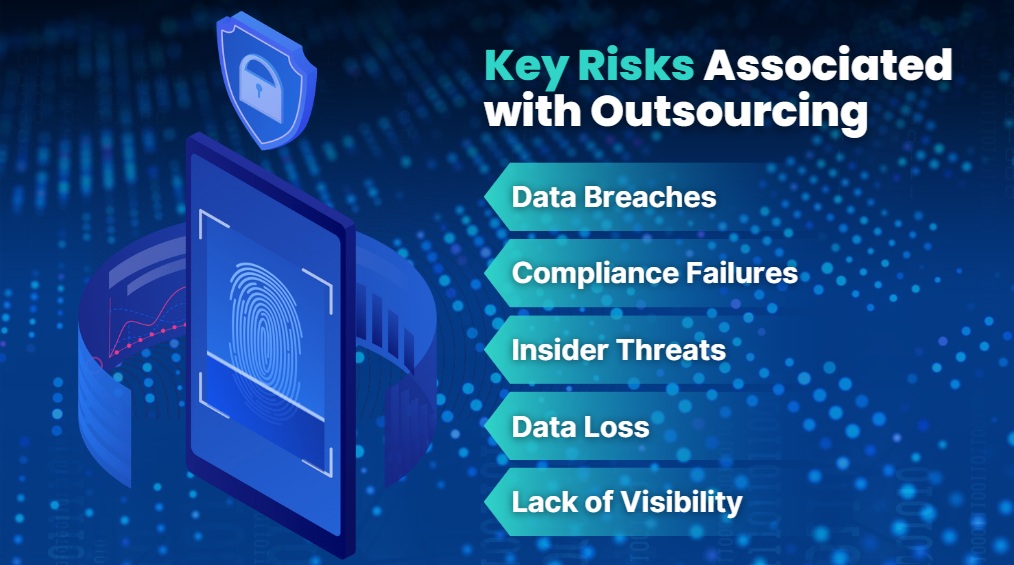
- Data Breaches
Sharing information with third parties increases the risk of unauthorized access or hacking. Cybercriminals often target vendors as a backdoor to access sensitive company data.
- Compliance Failures
Companies operating in regulated industries must ensure that their outsourcing partners comply with laws such as GDPR, HIPAA, or PCI DSS. Non-compliance can result in hefty fines.
- Insider Threats
Employees of third-party vendors might intentionally or unintentionally misuse the data they handle.
- Data Loss
Without proper backups or disaster recovery plans, outsourcing providers might fail to protect data from being permanently lost due to hardware failures or cyber incidents.
- Lack of Visibility
Businesses may lose control over their data once it is shared with an outsourcing partner, making it difficult to monitor how the information is being used [2].
Virtual360’s Commitment to Data Security & Compliance
Virtual360 demonstrates a strong commitment to security by showcasing several certifications and affiliations that highlight their focus on safeguarding data. Here’s why they provide utmost care when it comes to security:
- DPO/DPS Registration:
Virtual360 ensures compliance with Philippine data privacy laws through active registration with the National Privacy Commission.
- ISO 27001 Affiliation:
The team adheres to globally recognized best practices for information security management, demonstrating their proactive approach to mitigating risks.
- Password Breach Protection:
Virtual360 actively safeguards against password vulnerabilities to maintain the integrity of client accounts and systems.
- Google Ecommerce Certification:
By earning this certification, Virtual360 secures e-commerce transactions and ensures reliable services.
- DTI Mentor Program:
This affiliation highlights their commitment to maintaining professionalism and high standards across their operations.
These certifications and programs collectively demonstrate that Virtual360 prioritizes client data protection, compliance, and system security.
Benefits of Prioritizing Data Security
Investing in data security during outsourcing offers numerous advantages:
- Enhanced Trust: Secure outsourcing practices reassure customers that their data is safe, strengthening brand reputation.
- Regulatory Compliance: Adhering to data protection laws and following cybersecurity tips minimizes the risk of legal penalties.
- Operational Continuity: Proactive measures for protecting business data reduce the likelihood of disruptions caused by cyber incidents.
- Cost Savings: Preventing breaches and data losses avoids costly remediation efforts and potential fines.
Prioritizing data security not only protects sensitive information but also ensures smoother operations and long-term business success.
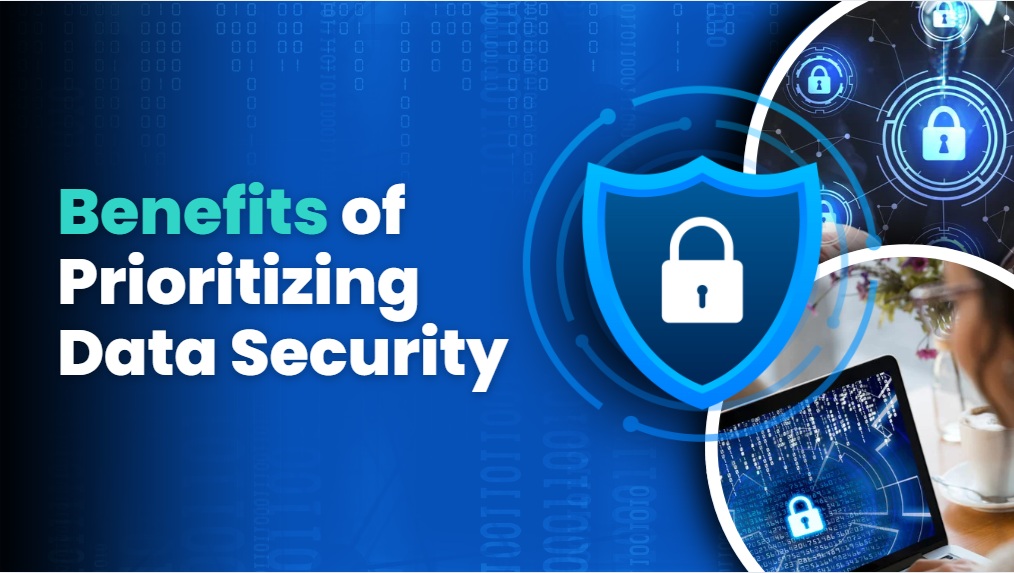
The Future of Data Security in Outsourcing
As outsourcing continues to evolve, so too must data security practices. Protecting business data requires leveraging emerging technologies such as artificial intelligence (AI) and blockchain to enhance data protection. AI can detect and respond to threats in real time, while blockchain ensures secure and transparent data transactions.
Moreover, businesses are increasingly adopting zero-trust frameworks, which operate on the principle of never assuming trust—even within the organization. This approach minimizes the risk of insider threats and strengthens overall security.
Key Takeaways
Outsourcing is a valuable strategy for modern businesses, but it comes with inherent risks to data security in outsourcing. By recognizing these risks and implementing robust safeguards, companies can protect their sensitive information while reaping the benefits of outsourcing. Prioritizing data security not only ensures compliance and operational continuity but also builds trust with customers and stakeholders.
Discover how Virtual360 delivers reliable, secure, and efficient outsourcing services to help your business thrive. Learn how we can safeguard your data while driving your success. Contact Virtual360 today!
References:
